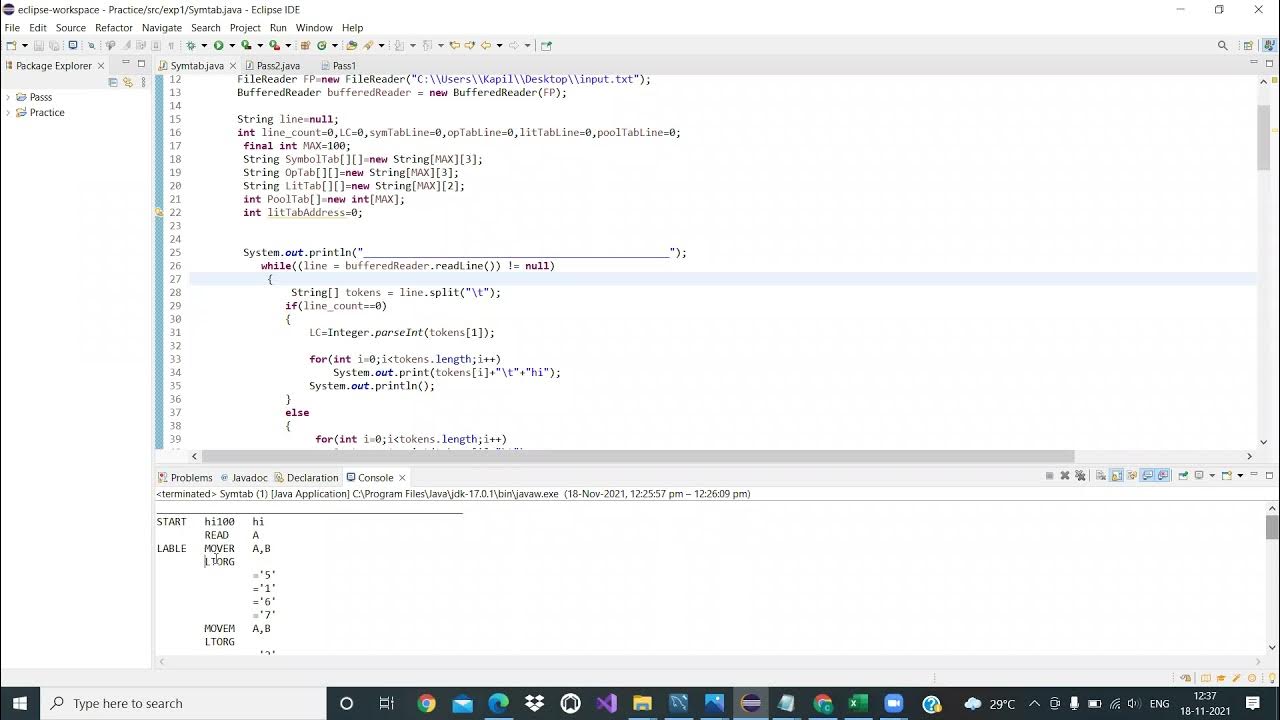Piaget - Stage 2 - Preoperational - Lack of Conservation
Summary
TLDRIn this engaging dialogue, a child explores the concepts of quantity and fairness through hands-on comparisons. The child examines two glasses of juice, initially perceiving the taller glass to hold more liquid. Next, they compare rows of quarters, demonstrating the development of their counting and comparative reasoning skills. Finally, the child shares graham crackers and realizes fairness is achieved when both parties receive equal amounts. This interaction illustrates the child's growing understanding of basic mathematical concepts and the importance of equitable sharing.
Takeaways
- 😀 Engaging children in discussions about volume helps develop their understanding of measurement.
- 🍹 Visual comparisons, like assessing juice in different glasses, enhance a child's perception of quantity.
- 💰 Counting objects like quarters can teach children about equality and spatial arrangement.
- 🔍 The arrangement of items can influence a child's perception of quantity, showing that context matters.
- 🤝 Sharing activities, like dividing graham crackers, promote lessons in fairness and negotiation.
- ⚖️ Children can quickly reassess fairness in sharing when presented with equal portions.
- 👶 Simple comparative exercises are effective tools for early childhood education.
- 📊 Children learn through hands-on experiences, making concepts more tangible.
- 🗣️ Open-ended questions encourage children to express their thoughts and reasoning.
- 🎉 Celebrating when children arrive at a correct conclusion reinforces positive learning experiences.
Q & A
What is the main activity being discussed in the transcript?
-The main activity involves comparing the quantities of juice in glasses, the number of quarters in rows, and sharing Graham crackers fairly.
How does the participant assess whether the glasses of juice have the same amount?
-The participant uses visual cues, particularly the height of the glasses, to determine that they likely contain different amounts of juice.
What conclusion does the participant reach about the juice in the glasses after pouring?
-After pouring the juice from one glass to another, the participant concludes that one glass has more juice than the other.
What method does the participant use to compare the quarters?
-The participant counts the quarters in each row to determine whether they have the same amount or if one has more.
What visual aspect leads the participant to think one row of quarters has more than the other?
-The participant believes one row has more quarters because it appears larger and more spaced out.
How does the participant feel about the fairness of sharing the Graham crackers initially?
-Initially, the participant does not feel that the sharing is fair because one person seems to have more than the other.
What change does the participant make to ensure the sharing of Graham crackers is fair?
-The participant adjusts the distribution of Graham crackers so that both individuals have the same number.
What key concept is illustrated through the interaction with the glasses of juice?
-The interaction illustrates the concept of volume perception and how physical dimensions can influence our judgment about quantity.
What educational lesson can be drawn from the quarters comparison activity?
-The quarters comparison teaches about the importance of counting and visual arrangement in determining quantity.
What broader social skill does the sharing of Graham crackers address?
-The sharing activity addresses the social skill of fairness and negotiation in interpersonal relationships.
Outlines

このセクションは有料ユーザー限定です。 アクセスするには、アップグレードをお願いします。
今すぐアップグレードMindmap

このセクションは有料ユーザー限定です。 アクセスするには、アップグレードをお願いします。
今すぐアップグレードKeywords

このセクションは有料ユーザー限定です。 アクセスするには、アップグレードをお願いします。
今すぐアップグレードHighlights

このセクションは有料ユーザー限定です。 アクセスするには、アップグレードをお願いします。
今すぐアップグレードTranscripts

このセクションは有料ユーザー限定です。 アクセスするには、アップグレードをお願いします。
今すぐアップグレード5.0 / 5 (0 votes)






